|
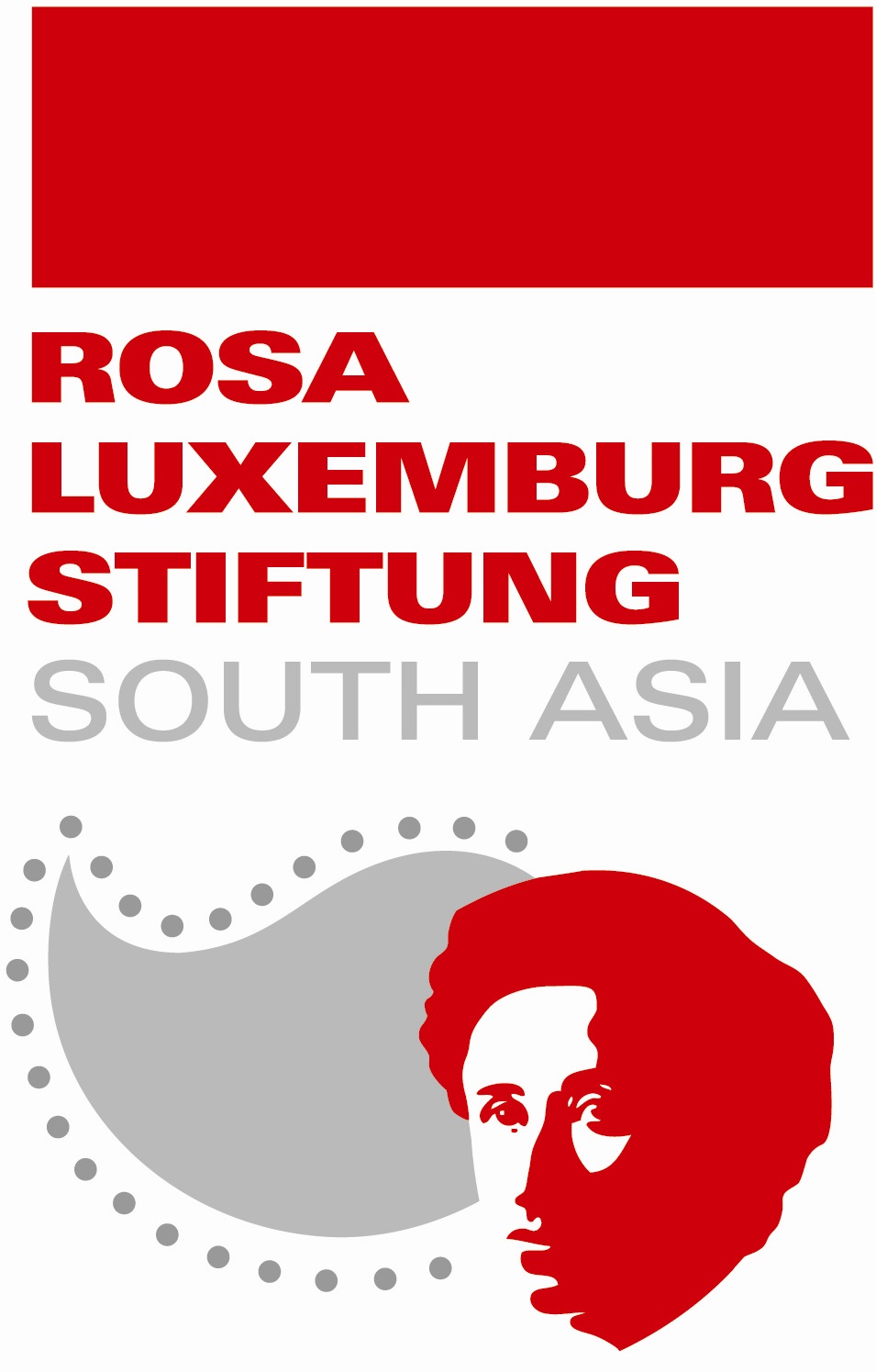
Researchers & Experts in 2016 ||
Researchers & Experts
in 2017||
Researchers & Experts
in 2018

Researchers & Experts in 2018
|
Sl. No. |
Picture |
Bio Note |
|
|
Researchers |
|
1. |
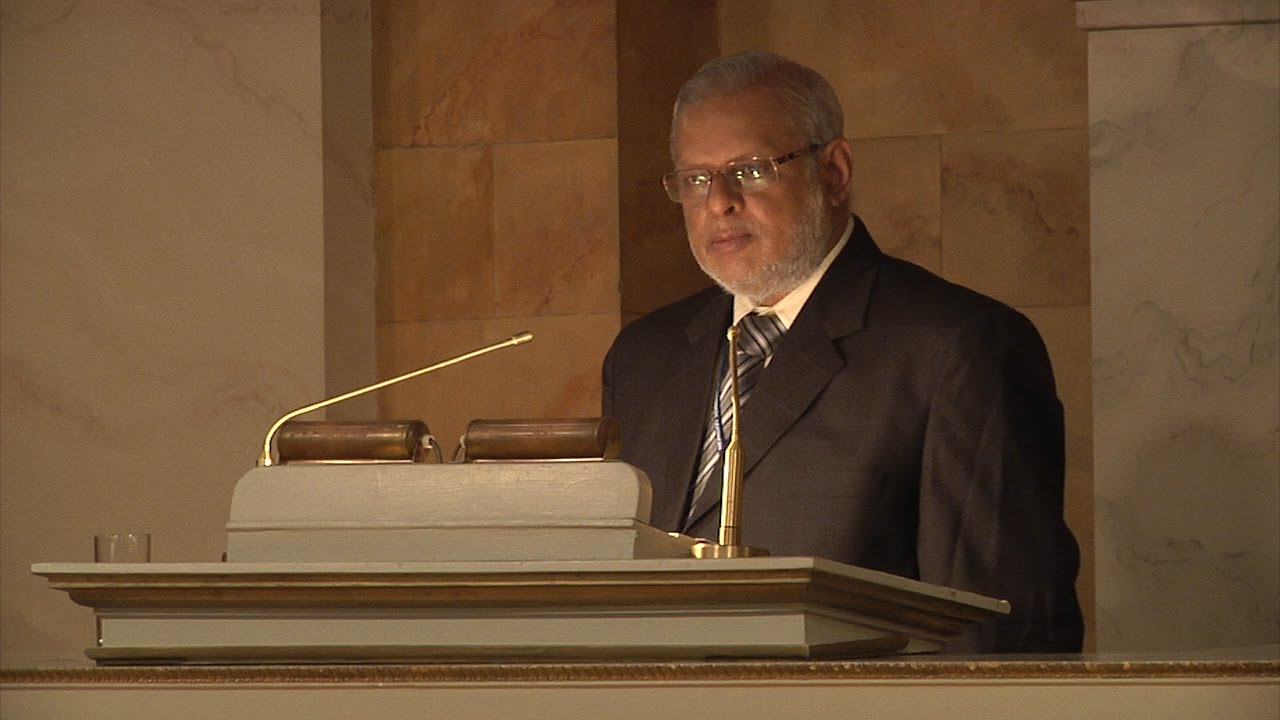 |
Ranabir Samaddar belongs
to the critical school of thinking and is considered as one
of the foremost theorists in the field of forced migration
studies. He has worked extensively on issues of forced
migration, the theory and practices of dialogue, nationalism
and post-colonial statehood in South Asia and new regimes of
technological restructuring and labour control. The
much-acclaimed ‘The Politics of Dialogue: Living Under the
Geopolitical Histories of War and Peace’ was a culmination
of his long work on justice, rights and peace. His recent
political writings published in the form of a two-volume
account, The Materiality of Politics (2007), and The
Emergence of the Political Subject (2009) have challenged
some of the prevailing accounts of the birth of nationalism
and the nation-stat, and have signalled a new turn in
critical postcolonial thinking. His co-authored work on new
town and new forms of accumulation ‘Beyond Kolkata: Rajarhat
and the Dystopia of Urban Imagination’ (Routledge 2013)
takes forward urban studies in the context of post-colonial
capitalism. He is currently the Distinguished Chair in
Migration and Forced Migration Studies, Calcutta Research
Group. |
|
2. |
|
Rajat Ray
is a member of Calcutta Research Group, Kolkata and an
eminent journalist. He is a senior journalist who has worked
for many years for Ananda Bazar Patrika and is now a media
consultant. He has also worked with Kolkata TV. Among other
spheres, his work interests lie in the role and
responsibilities of reporters in conflict situations, their
objectivity in accessing information in addition to the
complexities of development and displacement in east and
north-east India and issues of illegal migration. |
|
3. |
Research Topic:
The Defining Moments of Left Popular Politics in West
Bengal:The
Food Movements of 1959 & 1966 |
Abstract |
| |
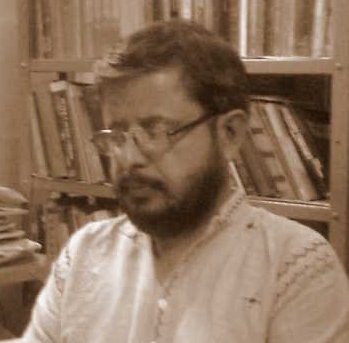 |
Sibaji Pratim Basu,
Professor and Head of the Department of Political Science
with Rural Administration, Vidyasagar University, Midnapore,
West Bengal (India) is a senior teacher, researcher and
author in the field of a wide range of subjects in social
science. He
is a member of Calcutta Research Group, Kolkata.
For more than a decade he has specialised in “Cultural
Politics”. A regular contributor to academic journals/books
and popular dailies, periodicals, he specialises in Modern
Indian Political Thought & Politics, Socialist Thought and
also has serious interest in the issues related to forced
migration in contemporary South Asia and people’s
‘sustainable rights’ in India. |
|
4. |
Research Topic:
The
Political Mobilisation of Refugees in West Bengal |
Abstract |
|
|
|
Tista Das
is Assistant Professor at the Department of History, Bankura
University, Bankura. Her
teaching career had begun at Hooghly Mohsin College under
the WBES. Her doctoral dissertation was on 'Partition,
Migration and Resettlement: The Experience of Women; Bengal
1947-1964.' She has authored and co-authored multiple
peer-reviewed scientific papers along with presentations at
national and international conferences. Her research work
encompasses narratives of life in refugee colonies of Bengal
post-partition. Her academic and research contributions have
acclaimed recognition from experts around the world.
|
|
5. |
Research Topic:
Calcutta and the Making of a Popular Movement: The Anti-Tram
Fare Increase Resistance Movement, 1953 |
Abstract |
| |
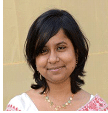 |
Anwesha Sengupta
is Assistant Professor at Institute of Development Studies,
Kolkata. Her PhD dissertation looks into the politics of
partition and nation making in South Asia, focusing on East
and West Bengal. She is currently looking into the political
history of West Bengal after independence. Anwesha has
received several fellowships at National and International
Universities including Foreign Travel Grant. She has
published in Refugee Watch, Indian Economic and Social
History Review, Policies and Practices and also in an edited
volume [Calcutta: The Stormy Decades, edited by Tanika
Sarkar and Sekhar Bandyopadhyay, Social Science Press,
2015]. |
|
6. |
Research Topic:
People and Spaces of Insurgency: Some Reflections on Social
History of the Last Fifty-years |
Abstract |
| |
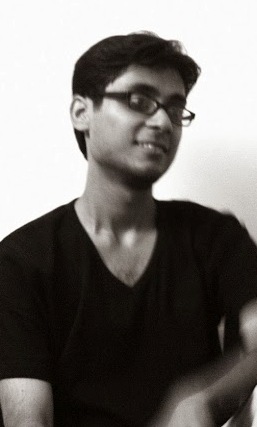 |
Kaustubh Mani Sengupta
is Assistant Professor
at the Department of History, Bankura University, Bankura.
His PhD work explored the process of urbanisation of
Calcutta from the middle of the eighteenth century up to the
initial decades of the twentieth century, looking at various
spaces of colonial Calcutta in trying to map the ways in
which the city was imagined, perceived and shaped. His main
fields of interests are colonial history with a focus on
South Asia, the history of modern Bengal, spatial
approaches, particularly urban history. |
|
|
|
|
|
7. |
|
Arup Kumar Sen
is Associate Professor at the Department of Commerce,
Serampore College, Serampore, Hooghly, West Bengal. He is a
member of Calcutta Research Group, Kolkata. His area of
specialisation is Finance and Management and research
interests include Labour History and Political Economy. He
has published various research papers on capital, labour,
mode of labour control in colonial India, finance capitalism
and politics of rural governance. He is the author of ‘Nandigram:
A Tale of Developmental Violence’ (EPW 2008), ‘Finance
Capitalism and the Spectre of Crisis’ (Mainstream 2008),
‘Politics of Governance in Rural West Bengal’ (The Calcutta
Journal of Political Studies, April 2007-March 2009). |
|
8. |
Research Topic:
Popular Resistance in Kashmir |
Abstract |
| |
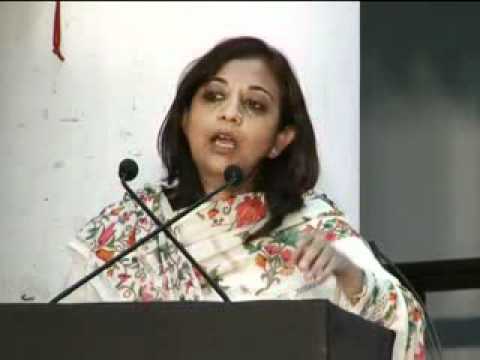 |
Anuradha Bhasin
is Executive Editor, Kashmir Times. She is a writer and a
peace activist involved in campaigns for human rights’
violation victims in Kashmir, crimes against women as well
as India-Pakistan friendship. She has delivered speeches on
resistance and resilience of people in Kashmir. Some of the
other focal areas of her work include dialogues on the
treatment met out to and attitude of society towards crime
victims, and the limitations of legal framework in the
country to serve justice. She also writes stories for
children and adults. |
|
9. |
Research Topic: Understanding an Outlier State & Society in
Himachal Pradesh |
Abstract |
| |
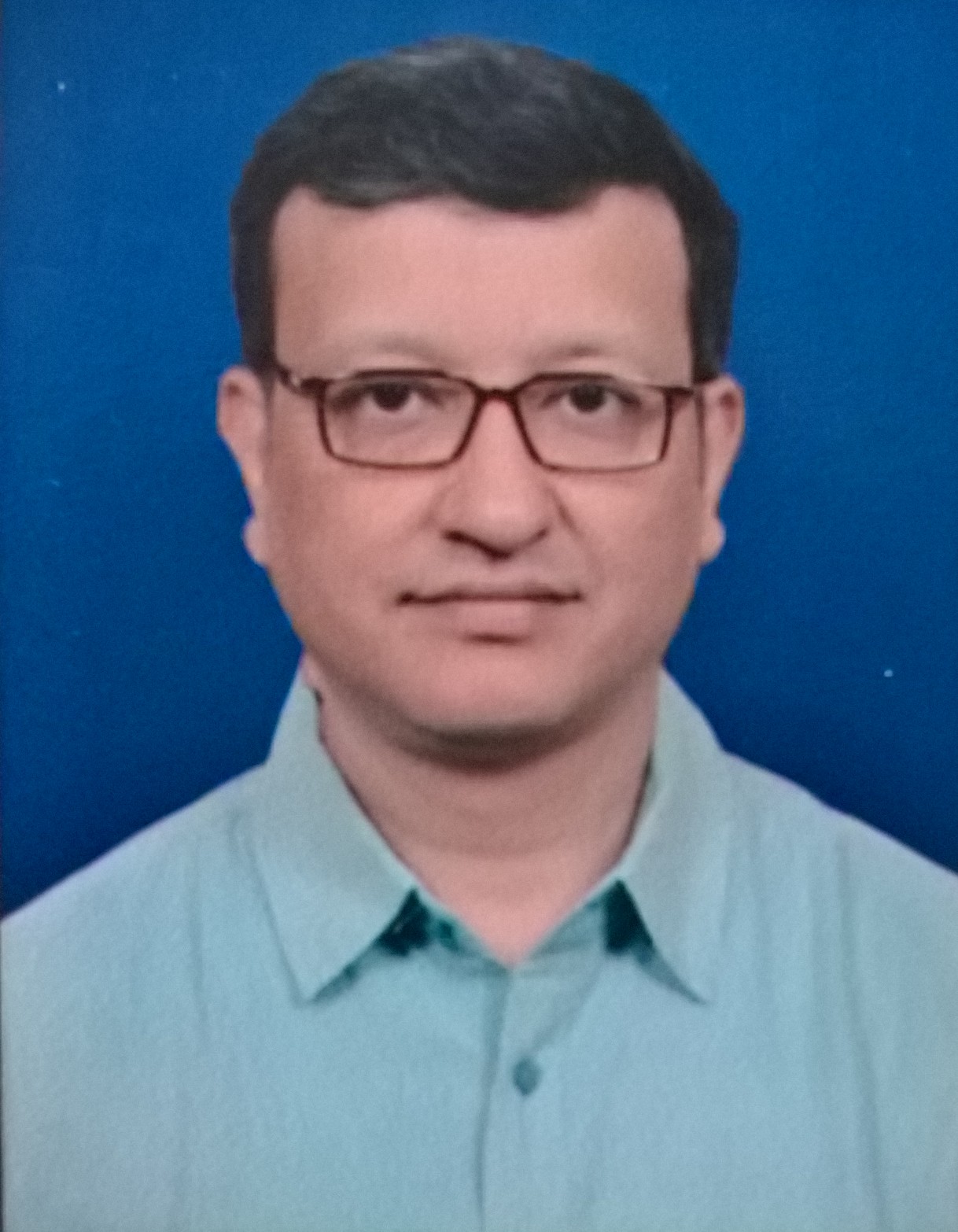 |
Aniket Alam,
is Associate Professor, at IIIT-Hyderabad. His research on
the working and living conditions of the unorganised
construction workers of Delhi National Capital Region of
India, found place in ILO strategy on informal sector
workers in India. His research interests span across Modern
Indian History, the Western Himalayas and Mountain
Societies, Historical Methods, Geography and History. He has
written extensively on culture, class struggle and
stratification in the hill state of Himachal Pradesh, the
struggles of peasants against organisation of legislature.
He is the author of the book ‘Becoming India’, Cambridge
University Press, 2008. |
| |
|
|
10. |
|
Sutapa Chatterjee Sarkar
is Professor and Head of the Department of History,
West Bengal State University, Barasat. She has pursued
research on Social and Environmental History of the Bay of
Bengal Littorals, ideas on Education in Modern India, along
with inter-disciplinary work involving history of challenges
faced by migrating people in ecologically fragile niches.
She has been Research Associate at South Asian Institute,
Heidelberg, Germany (2000-2001) and also at the Institute of
Ethnology, Goethe University, Germany (2001-2002). She is a
recipient of the ‘Shiksha Ratna Samman’ award from the
Government of West Bengal. She has authored the book ‘The
Sundarbans’, Social Science Press, 2010. She has published
numerous papers in national and international journals as
well as in conference proceedings volumes, on her research
work on Sundarbans. |
|
11. |
Research Topic:
The Spectacle of Anna Hazare Unlimited |
Abstract |
| |
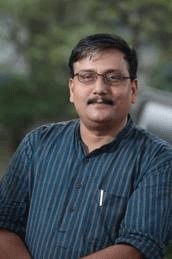 |
Manoj K. Jha is
Professor and Head of the Department of Social Work,
University of Delhi. His research interests revolve around
methodological and conceptual issues of social protest
movements, minorities and marginalized communities. His
latest book ‘Riots as Rituals’, is based on his research on
communal relations, mobilization and violence, with the
Bhagalpur riots in the backdrop. An academician-activist to
the core, he practises anti-oppressive approach in Social
Work. He has designed and implemented rehabilitative and
re-conciliatory action projects in Gujarat and Rajasthan as
a part of civil society fact-finding teams that respond
violence and atrocities.
Currently he is a Rajya Sabha M.P. from Bihar. |
|
12. |
Research Topic:
Contentious Issues, People’s Politics and Popular Leadership |
Abstract |
| |
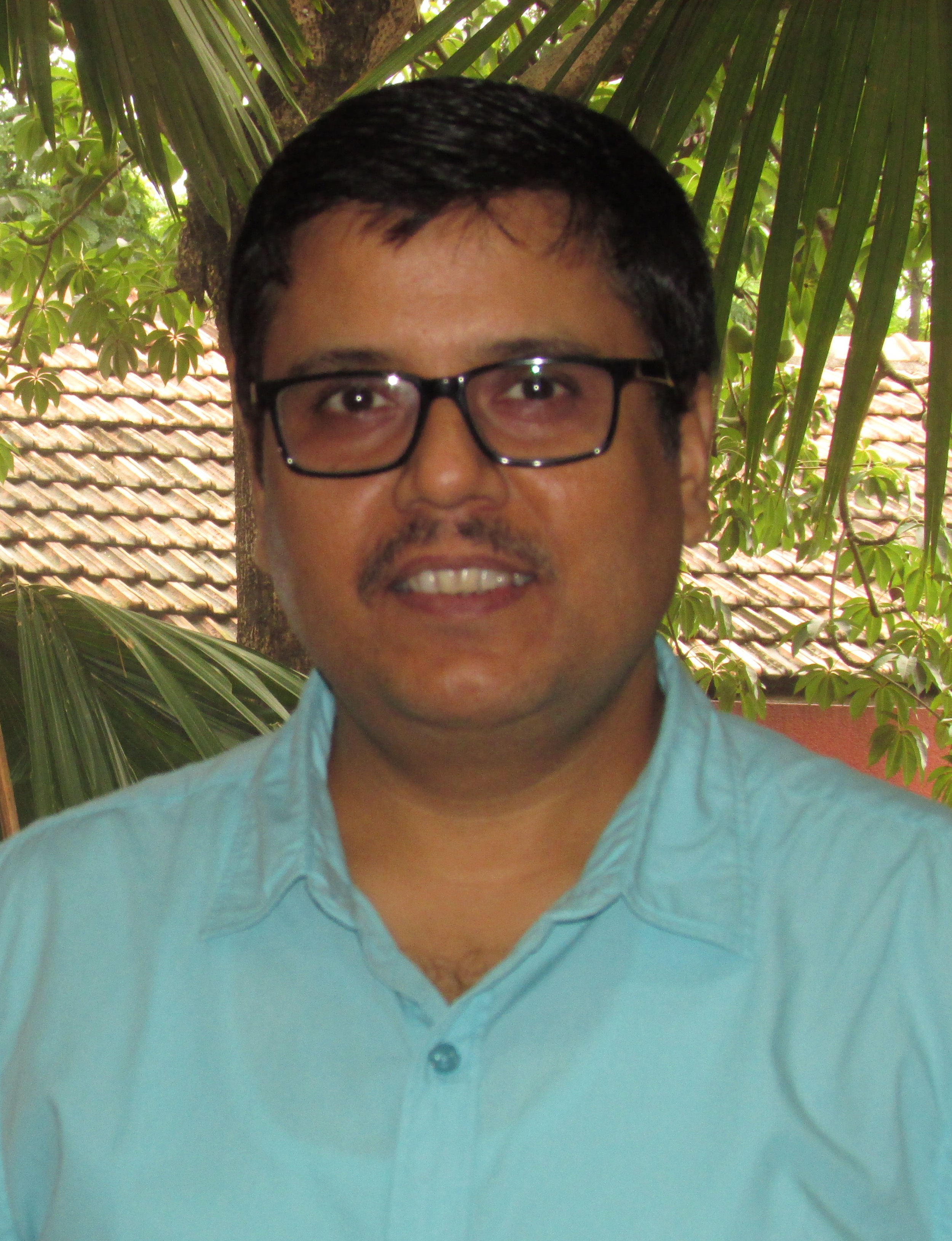 |
Manish K. Jha
the Vice-President of Calcutta Research Group, is Professor
and Dean of School of Social Work at Tata Institute of
Social Sciences, Mumbai. His research interests include
issues of development and governance, urban poverty and
migration, social justice, social exclusion and human
rights. He has authored several books on Human Rights and
Politics of Social Justice along with numerous papers on
Food security, Social Action, Marginality and Justice,
Disaster and Development, etc. He has been actively engaged
with development practice, policy advocacy, and relief and
rehabilitation work in post disaster situation. |
|
13. |
Research Topic:
Cultural Texts and Political Orality |
Abstract |
| |
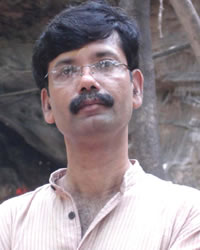 |
Badri Narayan Tiwari
poet, author and social scientist,
is the Director of Govind Ballabh Pant Institute, Allahabad.
Badri Narayan Tiwari is also a Social Historian and Cultural
Anthropologist. His interests cover a wide range of subjects
spanning from culture, memory and politics, contemporary
histories, ethnography of marginalized politics, social and
anthropological history, Dalit and subaltern issues and
identity formation and the question of power.
He
is the author of ‘The Making of the Dalit Public in North
India: Uttar Pradesh, 1950 Present’, Oxford University
Press, 2011, among other books. |
|
14. |
Research Topic:
(Un)-told Stories: A study of Naxal women in Bihar (1970
-90) |
Abstract |
| |
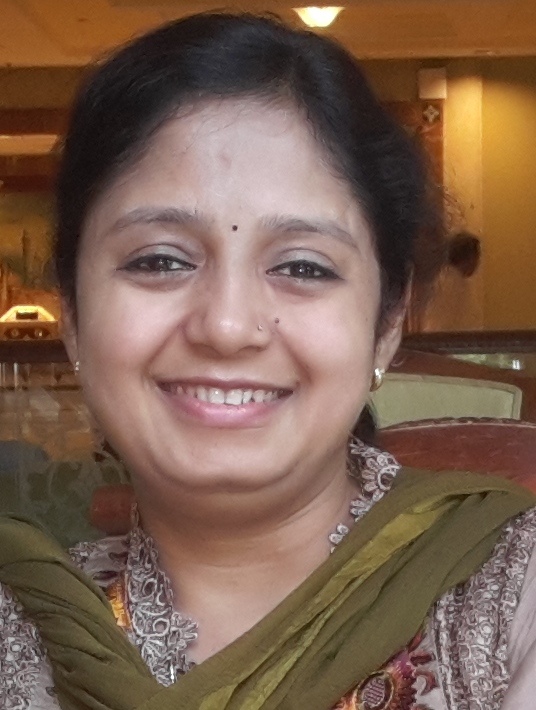 |
Archana Singh
is Assistant Professor at Govind Ballabh Pant Institute,
Allahabad. She has a post-doctoral degree from
Indian Council of
Philosophical Research, New Delhi. Focusing on ongoing
literary writings and activism in Hindi belt by Dalit women,
she is trying to examine how Dalit women are strategically
using and recreating socio-cultural spaces as tools to
generate collective and critical dialogue on issues of
patriarchy and caste. She is also trying to understand
contemporary caste/gender issues among Dalits, tribes and
minorities, especially the method that Dalit women use to
resist subjection hidden in Caste-class-gender dynamics. |
| |
|
|
|

Researchers & Experts in 2017
|
Sl. No. |
Picture |
Bio Note |
|
|
Researchers |
|
1. |
Research Topic:
Popular Politics, Upsurge and the Revolt in the Sixties
and Seventies of the Last Century |
Abstract |
|
Draft Paper |
| |
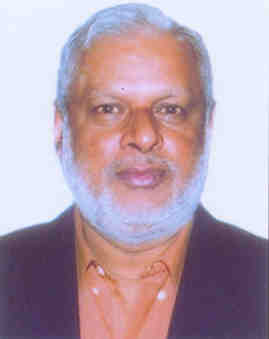
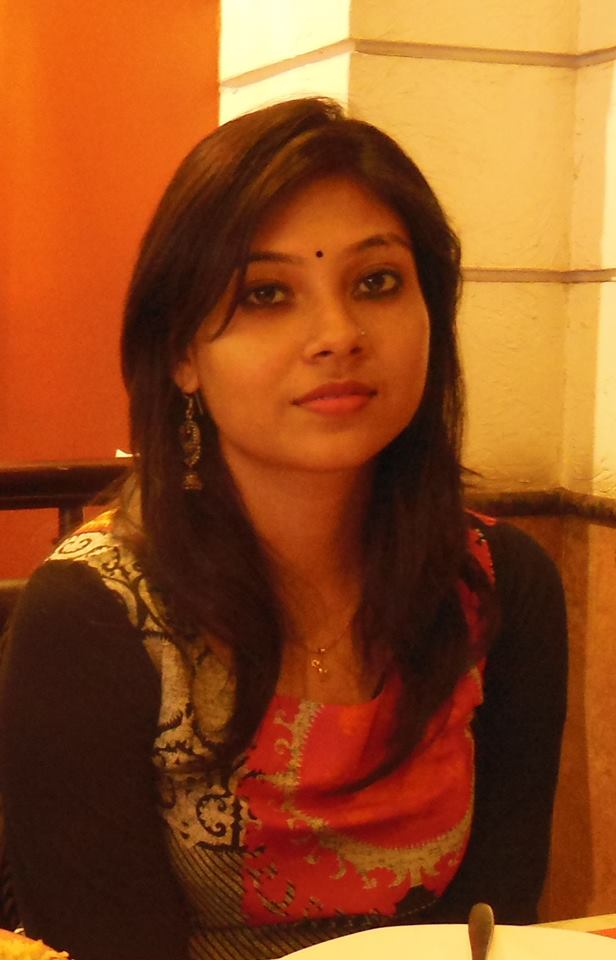
|
Ranabir Samaddar is
the
Distinguished Chair in Migration and Forced Migration
Studies
of the Calcutta Research Group, and belongs to the school of
critical thinking. He has pioneered along with others peace
studies programmes in South Asia. He has worked extensively
on issues of justice and rights in the context of conflicts
in South Asia. The much-acclaimed The Politics of Dialogue (Ashgate,
2004) was the culmination of his work on justice, rights,
and peace. His particular researches have been on migration
and refugee studies, the theory and practices of dialogue,
nationalism and post-colonial statehood in South Asia, and
new regimes of technological restructuring and labour
control. He authored a three-volume study of Indian
nationalism, (Whose Asia Is It Anyway – nation and The
Region in South Asia, 1996, The Marginal Nation –
Transborder Migration from Bangladesh to West Bengal, 1999,
and A Biography of the Indian Nation, 1947-1997, 2001). His
recent political writings published in the form of a 2
volume account, The Materiality of Politics (Anthem Press,
2007), and the just published The Emergence of the Political
Subject (Sage, 2009) have challenged some of the prevailing
accounts of the birth of nationalism and the nation state,
and have signalled a new turn in critical post-colonial
thinking. Email
: ranabir@mcrg.ac.in
Sucharita Sengupta is associated with Calcutta
Research Group (CRG). Her research interests pertain to
Forced Migration and Border studies in the context of Asia.
After masters’ in Political Science from the University of
Calcutta, she joined the Calcutta Research Group as a
Research Assistant working on ‘West Bengal-Bangladesh
Borderland: Humanitarian issues’. Under this, she wrote a
paper on women trafficked from Bangladesh incarcerated in
jails of West Bengal, India. This was presented at a
workshop “Interrogating Forced Migration” in March 2015 and
published as “Bordered Lives: Women from Bangladesh behind
bars in India”, La Frontera 35 (2). Her recent
research in CRG focused on the Rohingya refugees as part of
the perilous irregular maritime migrants to the shores of
South East Asian nations like Thailand and Malaysia. In this
work she tried to trace the history and context of such
maritime drives, reasons that allure them to take to the
sea, and also the recent media attention to the phenomenon
generating mass awareness of the issue internationally,
especially in Bangladesh, and to some extent, India. The
recent focus on the plight of the boatpeople on the high
seas therefore, shows the need of a comprehensive research
and continuous advocacy to keep the issue relevant.
Currently she is working on patterns of migration in
Northeast India in wake of the Look East policy of the
Indian government, whether population mobility is impacted
upon by the developmental trajectory of the government in
the region and issues of out migration from Northeast top
the rest of India. |
|
2. |
Research Topic:
The Cultural-Creative Dimension of the Naxalite Movement
|
Abstract |
|
Draft Paper |
| |
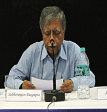 |
Subhoranjan Dasgupta was formerly professor of Human
Sciences at the Institute of Development Studies Kolkata (IDSK).
He obtained his PhD from the South Asia Institute,
University of Heidelberg. He has several publications to his
credit in Bengali and English. His two abiding passions are
neo-Marxian aesthetics and the partition of Bengal, 1947 and
he has written on Jibanananda Das, Bishnu Dey, Akhtaruzzaman
Elias, Bertolt Brecht and Gunter Grass. His publications
include The Trauma and the Triumph : Gender and Partition
in Eastern India, The Tin Drummer’s Odyssey and
Elegy and Dream: A critical appraisal of
Akhtaruzzaman Elias’s creativity. Dasgupta has recently
received the prestigious Lila Roy Smarak Purashkar (Lila Roy
Memorial Award) for essays, interviews and translations
published in English and Bengali in journals, magazines and
anthologies. |
|
|
3. |
Research Topic:
Popular Movements in the Districts of Bengal,
Birbhum, Nadia and Midnapore, 1950s-1970s |
Abstract |
|
Draft Paper for A. Ghosh |
|
Draft Paper for
A. Sengupta |
| |
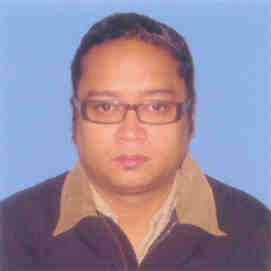

|
Atig Ghosh is Assistant
Professor of History, Visva-Bharati, Santiniketan. He has
taught history on a part time basis at the West Bengal State
University (Barasat) and the University of Calcutta. Earlier
he worked as Research Associate at Mahanirban Calcutta
Research Group. He was also an External fellow at the
Maulana Abul Kalam Azad Institute of Asian Studies,
carrying out a research project titled ‘Makings of Bengali
Identity in the Nineteenth Century: A Mofussil
Optic’. He had previously been associated with Bengal
Post, a Kolkata based daily. Having studied history at the
Presidency College and Jawaharlal Nehru University, he
received his doctoral degree from El Colegio de Mexico,
Mexico City. His doctoral research was lodged around
conjoint concerns of political economy and cultural
anthropology in the context of small town (mofussil) Bengal
in the nineteenth century. He has researched on
statelessness and its socio-ontological textures and
tangles in the intractable fastness of the Indo-Bangladesh
enclaves. He has edited a book Branding the Migrants
(Kolkata, 2013) and co-edited a book Stateless in South
Asia (Delhi, 2015) with Paula Banerjee and Anasua Basu
Ray Chaudhury.
Anwesha Sengupta is a Assistant Professor, IDSK, Kolkata. Her PhD dissertation, titled
Breaking Up Bengal: Land, People and Things, 1947 -1952,
looks into the politics of partition and nation making in
South Asia, focusing on East and West Bengal. She is
currently looking into the political history of West Bengal
after independence.
Anwesha has received several fellowships including
ICSSR-CSDS PhD Fellowship, DAAD Visiting Fellowship to
University of Goettingen, Foreign Travel Grant from ICHR to
work in British Library etc. She has published in Refugee
Watch, Indian Economic and Social History Review,
Policies and Practices and also in an edited volume [
Calcutta: The Stormy Decades, edited by Tanika Sarkar
and Sekhar Bandyopadhyay, Social Science Press, 2015] |
|
|
4. |
Research Topic:
First Five Years of Left Front Rule in West Bengal by
Atig Ghosh |
Abstract |
|
Draft Paper |
|
5. |
Research Topic:
Backward Classes Movements led by Karpuri Thakur
|
Abstract
(M.K.Jha) |
|
Draft Paper |
|
Abstract
(M.Kumar) |
|
Draft Paper |
| |

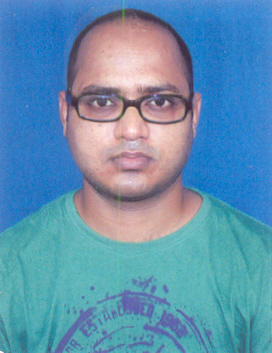 |
Manish K. JHA ,
the vice president of the CRG, is Professor and Dean of
School of Social Work at Tata Institute of Social Sciences,
Mumbai. He teaches courses on Community Organisation and
Development Practice, Social Action and Movement and Social
Policy, Planning and Programmes. His research interests
include issues of development and governance, urban poverty
and migration, social justice, social exclusion and human
rights. He had authored a book Human Rights: Agencies and
Agenda (2003) and co-edited a book Traversing Bihar:
Politics of Development and Social Justice (2014). He has
authored several papers on Food security, Social Action,
Marginality and Justice, Disaster and Development, Politics
of social justice, etc. He has been recipient of
Commonwealth Academic Fellowship (2009) at the School of
Oriental and African Studies, UK; Erasmus Mundus Academic
Fellowship (2011) at University College Dublin, Ireland;
UKIERI visiting Fellowship (2013) at Durham University, UK
and Palme Professorship (2013) at Gothenburg University,
Sweden. He is a member of several research organisations and
has been activelyengaged with development practice, policy
advocacy, and relief and rehabilitation work in post
disaster situation.
Email: manishj@tiss.edu ; jhamanishk19@gmail.com
Mithilesh Kumar
is a PhD Candidate at Western Sydney University,
Australia. His dissertation tries to understand the
evolution of new forms of governance, sovereignty and labour
processes and politics in the context of infrastructure. He
studied Delhi airport for his thesis. He has earlier worked
on logistics of migration, disaster management and
governance in Bihar. His interest is in the issues of
logistics, migration and labour and politics. He is now
currently working on the dialogic relationship between the
nature, evolution and innovation of the Indian state with
social and political movements in India. He
is the author of
"Governing Flood, Migration and Conflict in North Bihar." Government
of Peace Social Governance, Security and the Problematic of
Peace. Ed. Ranabir Samaddar. London: Ashgate, 2015 and
“Statistics , Public-Private Partnership and the Emergence
of a New Subject.” Accumulation in Postcolonial Capitalism,
Ed. Ranabir Samaddar, Samita Sen, and Iman Kumar Mitra,
Singapore: Springer, Forthcoming. |
|
| |
|
|
|
|
Experts |
|
1. |
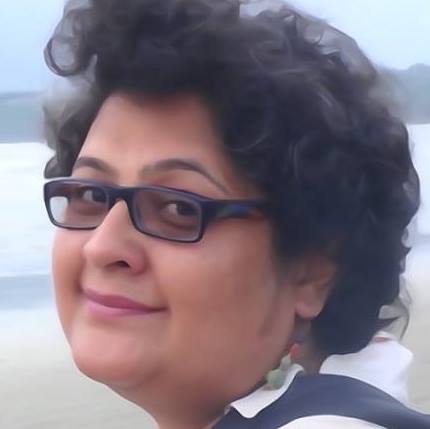 |
Mallarika Sinha Roy teaches in Centre for Women’s
Studies, School of Social Sciences, Jawaharlal Nehru
University. Earlier she has taught Centre of Global South
Asian Studies, University of Copenhagen and she was a
post-doctoral fellow at Department of Society and
Globalisation, Roskilde University, 2008-2009. She has
studied in Presidency College, Kolkata, Jawaharlal Nehru
University, New Delhi and University of Oxford (UK). She has
written a book titled Gender and Radical Politics in
India: Magic Moments of Naxalbari (1967-1975) (Routledge
Studies in South Asian History Series, 2010). She has
also written several journal articles and book chapters
including “Bringing Space Alive: Doreen Massey’s World of
Connected Geography”, (Economic and Political Weekly,
2016), “Intimate Spaces of Struggle: Rethinking Family and
Marriage in Contemporary India” in Knut A. Jacobsen (ed)
Routledge Handbook of Contemporary India, (London:
Routledge, 2015), “Rethinking Female Militancy in
Postcolonial Bengal”, Feminist Review, (2012), “The
Romantic Manifesto of Revolution: Some Reflections on Issues
of Gender in the Naxalbari Movement” in Pradip Basu (ed)
Discourses on Naxalite Movement (1967-2009): Insights in
Radical Left Politics (Calcutta, 2010), “Magic Moments
of Struggle: Women's Memory of the Naxalbari Movement in
West Bengal, India (1967-1975)”, Indian Journal of Gender
Studies, (2009), “Contesting Calcutta Canons: Issues of
Gender and Mofussil in the Naxalbari Movement in West Bengal
(1967-1975)”, Contemporary South Asia, (2009) among
others. She was the co-convenor of Women’s Studies Seminar
Series, JNU, 2013-2015 and she is a member of Indian
Association of Women’s Studies; British Association of South
Asian Studies (BASAS) and Political Studies Association (PSA). |
Comments |
|
2. |
 |
Sandip Bandyopadhyay is a noted independent
researcher, activist and public intellectual of Kolkata. For
many years, he has been doing research on labour issues,
communal riots, refugees and left politics in West Bengal.
His publishes regularly in various Bengali journals and in
Economic and Political Weekly. His books include
Deshbhag, Deshtyag (Partition and Migration),
Ranakshetra Rajpath: Ponchash Shat Doshoker Kolkatae Jubo
Bikhhob ( Battleground Highway: Youth Rebellion in
Kolkata in ‘50s and ‘60s), Itihasher Dike Fire:
Chechollisher Danga (Looking Back at History: The Riot
of 1946). |
Comments |
|
3. |
 |
Kumar Rana
1. Working with the
Pratichi Trust since 2001 and helped develop the research
team of the Trust that has taken shape of the Pratichi
Institute (in 2011). Led several primary investigations on
primary education, health delivery, food and nutrition
carried out by the Trust.
2. Was
part of a two-years ethnographic research project on
seasonal migration in Eastern India carried out by the
School of Development Studies, University of East Anglia.
3. Taken
part in quantitative data collection for several projects,
including the Human Development Report 1994 and Market
Information Survey of Households (MISH) 1995, carried out by
the National Council of Applied Economic Research (NCAER)
and travelled extensively in the states of Bihar and
Jharkhand (600 villages), Uttar Pradesh (60 villages),
Haryana (30 villages), Himachal Pradesh (30 villages),
Andhra Pradesh (28 villages).
4. Joined
active politics while pursuing high school education, and
was involved in a series of movements on land, wage, forest
and Jharkhand separate statehood.
5. Contributed
to journals like the Economic and Political Weekly,
and newspapers like the AnandabazarPatrika.
Contributory author of a number of volumes edited by eminent
scholars. Authored several reports of the investigations
carried out by the Pratichi Trust. Published a number of
books in Bangla. Taken part in and edited the translations
of Amartya Sen’s The Argumentative India, Identity and
Violence, The Idea of Justice (co-edited with Anirban
Chattpadhyay), Uncertain Glory (jointly authored by
Jean Dreze; jointly translated with Anirban Chattopadhyay);
translation of Sen’s The Country of First Boys is
ongoing (jointly with Anirban Chattopadhyay).
6.Member,
Calcutta Research Group; Honorary Fellow, Asian Development
Research Institute, Patna.
7. Currently
editing a Bangla fortnightly Arekrakam,
(Founder-editor: Ashok Mitra).
Pursuing (2015-17) Masters in Medical Sciences in Global
Health Delivery (MMSC-GHD) at the Department of Global
Health and Social Medicine, Harvard Medical School, Harvard
University. |
Comments |
|
4. |
 |
Dwaipayan Bhattacharyya is Professor at the Centre
for Political Studies, School of Social Sciences, Jawaharlal
Nehru University, New Delhi. His research interests include
Indian Government and Politics, Leftwing Mobilization in
Bengal, Democracy. He has taught on topics such as Indian
Government and Politics, Leftwing Mobilization in Bengal,
Democracy. His publications include
Government as Practice: Politics and Policies of the Indian
Left
(New Delhi: Cambridge University Press, 2016) and
Interrogating Social Capital: The Indian Experience,
(edited with Niraja G. Jayal, Sudha Pai and Bishnu N.
Mohapatra), (New Delhi, Sage, 2004).. |
Comments
Comments |
|
5.
|

|
Pushpendra
Kumar Singh
is a professor and in-charge of Tata Institute for Social
Sciences, Patna. A sociologist by training, Prof. Pushpendra
has been engaged in teaching, research and activism.
Previously, he was with Tata Institute of Social Sciences (TISS),
Mumbai as a professor. He was a visiting fellow to Asia
Research Centre, London School of Economics and Political
Science (LSE). He also served as the Dean of the School of
Rural Development (Tuljapur campus) of TISS. He has also
contributed in the Right to Food Campaign as a campaigner
and state adviser to the Commissioners of the Supreme Court.
As part of his work with ActionAid India, he was actively
engaged in dalit and tribal rights in Bihar and Jharkhand.
He made valuable contribution in human rights assessment of
the tsunami relief and resettlement in five tsunami-affected
countries. His academic contributions have been in the area
of land reforms and agrarian relations, rural labour,
castes, displacement and rehabilitation, governance and
elementary education. He was part of the authors’ team that
prepared the Public Report on Basic Education (OUP, 1999)
and has edited a volume on land reforms (Sage Publications,
2000). His publications include Land Reforms in India: An
Unfinished Agenda (Co-edited with Mr. B.K. Sinha),
Public Report on Basic Education in India (Co-authored),
Governing Caste and Managing Conflicts: Bihar 1990-2011
(Co-authored with Dr. Manish K Jha), Some Aspects of
Tenancy Debate: Implications for Policy Reforms
(Co-authored with B.K. Sinha in D. Narasimha Reddy (ed.),
Agrarian Reforms, Land Markets, and Rural Poor), Bihar:
Including the Excluded and Addressing the Failures of Public
Provision in Elementary Education (Co-authored with Anup
K. Karan in Santosh Mehrotra (ed.), The Economics of
Elementary Education in India: The Challenge of Public
Finance, Private Provision and Household Cost ) among
many others. |
Comments |
|
6. |
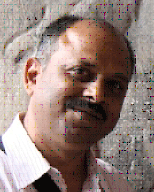 |
Amit Prakash is Professor at the
Centre for Study of Law and Governance, Jawaharlal Nehru
University, New Delhi. He has been Associate Professor at
the Centre for the Study of Law and Governance, Jawaharlal
Nehru University, New Delhi; and, Assistant Research
Professor at the Centre for Policy Research, New Delhi.
Amit Prakash holds a PhD from the School of Oriental
and African Studies, University of London. His areas of
research include politics
of development and identity; critical governance
studies (including governance indicators); conflict,
governance and the state; democratic political process in
India; policing in India; and, global governance. His
publications include, Jharkhand:
Politics of Development and Identity, (New
Delhi: Orient-Longman, 2001);Local
Governance in India: Decentralisation and Beyond,
co-edited with Niraja Gopal Jayal & Pradeep Sharma, (New
Delhi: Oxford University Press, 2006) and Governance in
India: Empirical Evidence from Twenty States,
(New Delhi: Routledge, forthcoming.) |
Comments |
|
7. |
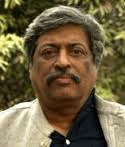 |
Prabhu Prasad Mohapatra is Professor, Department of
History at the University of Delhi. His academic career
after PhD began with a Fellowship at the Nehru Memorial
Museum and Library(1989-1993) and was followed by
Post-Doctoral appointments at Yale University(1993-94),
School of Oriental and African Studies, London,1994 and at
the University of Amsterdam (1994-1997).After returning to
India he was Visiting Fellow at the V.V Giri National Labor
Institute between 1998-2002 where he established the
Integrated Labor History Research Programme and set up a
fully digital and online Archive of Indian Labor, first of
its kind in India. His areas of interest and specialization
include History of Labor and Working Classes, Transnational
Labor History and Long distance Labor Migration, History of
Indian Diaspora, Economic History of Modern India,
Environmental History.From 2002 February he was appointed as
Associate Professor at the Department of History, University
of Delhi. He has taught courses in Economic History of
Modern India, History of Labour and Labouring Poor and
Working Classes, National Movement and Strategies of
Imperial Control in the M.A ( Final ) Year and “Slaves
Coolies and `free `labor : A History of Servitude” in the
M.A ( previous) classes. He has also taught MPhil classes on
Research Methods. He has supervised/and is currently
supervising research of more than 20 MPhil and PhD students.
He has had stints as Visiting Professor at Ecole Normale
Superiore (Cachan) (2008) and University of Goettingen
(2010-11) and held the L.M Singhvi Senior Fellowship at
University of Cambridge (2006) and Fellowship at
International Research Centre on Work and Lifecycle in
Global History Perspective, Humboldt University (2011). He
has been involved in the establishment of the Association of
Indian Labour Historians (AILH) and actively promoted
international academic cooperation around issues of history
of labor and Global History. |
Comments |
|
8. |
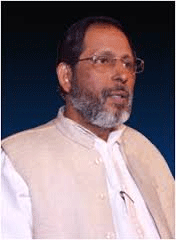 |
Anil Acharya is
a Bengali essayist,
short story writer and poet. In 1966, he founded the Bengali literary
quarterly and little magazineAnustup.
He graduated with an
honors degree in English literature from the Scottish
Church College. Thereafter
he earned his master's degree in English literature from the
University of Calcutta. He started publishing the literary
quarterly Anustup as an undergraduate student at
Scottish Church College in 1966.Since
his college days, he has written poems, short stories and
essays in Bengali and English. After earning a postgraduate
degree in English literature, he started out as a lecturer,
and later became a reader and then associate professor in
English at the Serampore College, within the aegis of
the University of Calcutta. He was also Head of the
Department of English and set up the Communicative English
programme in Serampore College. He is a member of the
Publisher and Bookseller's Guild, the organizers of the
Kolkata Book Fair, which is Asia's largest book fair and the
most attended book fair in the world. He was elected
Secretary of the Guild for three successive terms, between
1996-1998, and during his tenure, the noted French
Philosopher Jacques Derrida inaugurated the Kolkata Book
Fair in 1997.He has spent a life in writing and editing his
quarterly journal, and has also founded an English language
literary periodical for translated short stories from
Bengali, called Harvest.In 1970, he assisted the
Australian director Paul Cox as the assistant director in
making the documentary on Calcutta. He was also the
associate producer of Paul Cox's film "Force of Destiny"
released in 2014. He is currently associated with St.
Thomas' College of Engineering and Technology,
Kolkata.Between February 2013 and February 2015, he wrote a
regular Sunday column in the Bengali newspaper 'Ei Somoy',
called "Nipaatone Siddho". It documented the myriad
experiences that played out across four decades in the
Bengali cultural and political landscape, and shaped Anustup
and what it stands for. He is also the author of the Bengali
book titled "Parasmaipadi" which is a collection of his
selected articles.In
recognition of his efforts, in 2012, he was appointed as a Tagore
National Scholar by the Ministry
of Culture of
the Government
of India. |
Comments |
|
9. |
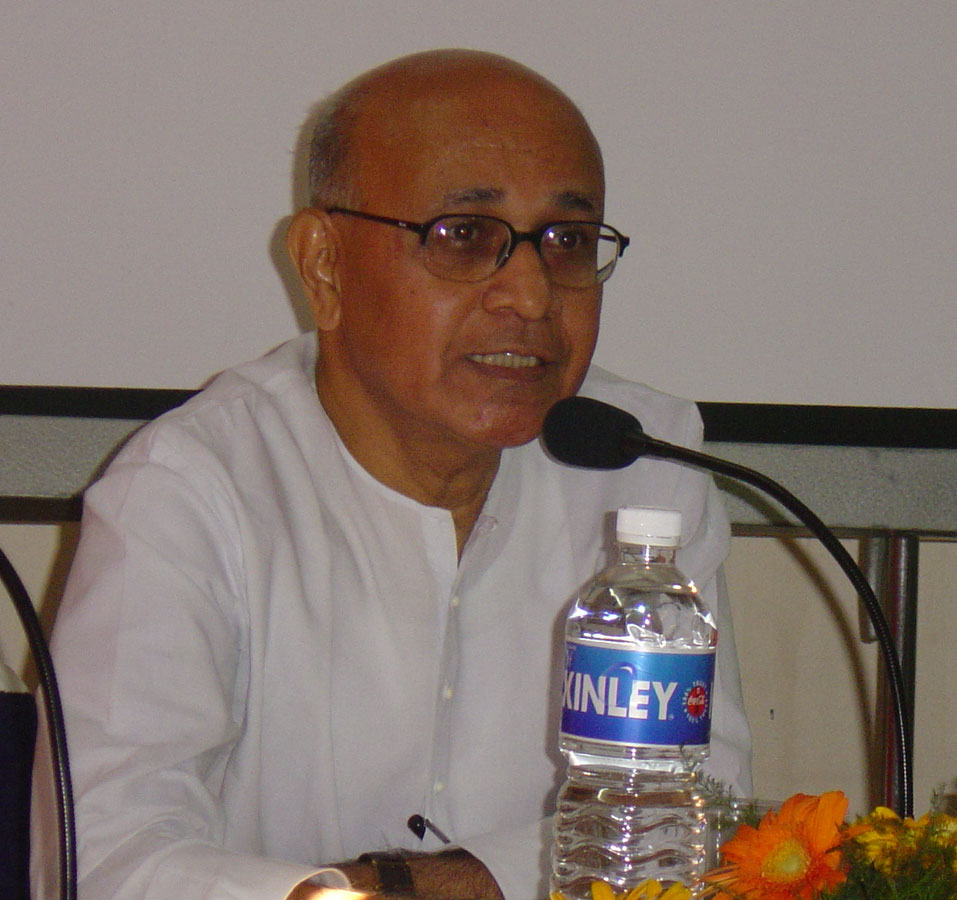 |
Prasanta Ray
is President of the Calcutta Research Group. His research
interest relates to the interface of society and politics
and economic morals. Currently he is trying to reconstruct
the history of early twentieth century banking crisis in
Bengal with a particular focus on the victims. This is a
part of history of greed in Bengal. His teaching engagements
include Everyday life worlds, Economic Sociology and
Research Methodology.He
joined West Bengal Junior Education Service in 1966. His
teaching in Presidency College began in 1977. He retired as
Professor and Head, Department of Political Science and
Professor-in-charge (1989-2003), Department of Sociology,
Presidency College, in 2003. He taught simultaneously as a
Guest faculty in Department of Sociology, Calcutta
University. He was Emeritus Professor in Political Science
and Sociology in Presidency College/University, 2004-12.
Heis currently Emeritus Professor in Sociology, Presidency
University, and Honorary Visiting Professor, Institute of
Development Studies Kolkata. He was Indian Council of Social
Science Research post-doctoral fellow: 1987-89, Visiting
Scientist, Sociology Research Unit, Indian Statistical
Institute, Kolkata (September, 2003-March, 2004), and
Member, Working Group on Under-graduate Colleges in India,
National Knowledge Commission. 2006.
-
His doctoral research was on role of family in political
education of the young in family. As an ICSSR fellow, he
researched on conflict management by the post-colonial
state in India. My current research interest is in
economic morals.He teaches Everyday Sociology,
Development Studies and Political Sociology in BA and MA
classes in Presidency University, and Economic Sociology
and Qualitative Research Methodology at MPhil level in
IDSK.
-
Academic Calendar
-
Staff Search
-
Departments & Courses
-
Online Resources
-
International
Collaborations
|
Comments |
|
10. |
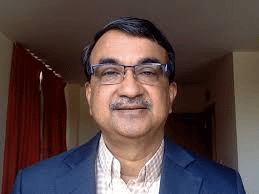 |
Priyankar Upadhaya
heads the Malaviya Center for Peace Research and holds the
UNESCO Chair for Peace and Intercultural Understanding at
Banaras Hindu Univerity. In his illustrious career spanning
close to four decades,
Prof. Upadhyaya has been teaching International Relations &
Peace Studies at Banaras Hindu University.
Professor Upadhayaya holds
M.Phil. and Ph.D Degrees of Jawaharlal Nehru Universityand
Advance International Diploma(s) in Conflict Resolution from
the
Uppsala University,
Sweden. Prof Upadhyaya pursued Post-Doctoral Research at London
University and the
Woodrow Wilson Centre for International Scholars, Washington
DC. He was selected for the Guest Scholar Award of the
Woodrow Wilson Centre of International Scholars at
Washington DC 1992, Faculty Research Award, Canadian Govt.
1999 and Senior Fulbright Award in 2004. Professor Upadhyaya
has taught Political Science & Conflict Resolution in many
parts of the world, including Concordia
University, Montreal; Ulster
University in Northern
Ireland, at the Department of Political Science, Karlstad
University, Sweden.
Professor Upadhyaya has also served as a guest faculty at
the US Air Force Academy at Colorado Springs. He has also
been Fellow at the Henry L Stimson Center, Wash DC, and a
Senior Visiting Fellow at the Peace
Research Institute (PRIO),
Oslo. Earlier this year Prof. Upadhyaya has been appointed
as PRIO Global Fellow.He
has contributed as a Resource Person for UN University of
Peace and at the Henry L Stimson Center, Wash DC. Prof.
Upadhyaya has also been a visiting speaker at the Foreign
Service Institute, Naval War Academy and National Defense
College in India. More recently, Prof Upadhyaya has served
as the ICCR Chair of Indian Studies at Dublin City
University.In
June 2016, Professor Upadhyaya delivered a path breaking
speech at the UN Consultative meet on 'Peace as a process'
held at Geneva. In September, 2016, Professor Upadhyaya was
invited by President Obama to the White House to attend a
meeting on Religious and Interfaith dialogue. He has served
in various quality committees constituted by Government of
India including the Civil Service Examination Reform
Committee under purview of the UPSC and the National Mission
on Education through ICT [NMEICT].
Professor Upadhyaya has publications in journals and books
from OUP,
MUP, CUP, Sage, Ashgate and Routledge among
others and research articles in reputed International
Journals such as the Denver Journal of International Law &
Policy; International Studies (Sage) and Strategic Analysis
(Routledge). |
Comments |
|
11. |
 |
Manoj K Jha is
Professor and Head of Department of Social Work, University
of Delhi. His research interests revolve around
methodological and conceptual issues of social protest
movements, minorities and marginalized communities. His
latest book Riots as Rituals is based on his research on
communal relations, mobilization and violence with the
Bhagalpur riots in the Backdrop. An academician-activist to
the core, he is a practitioner of emancipator and
anti-oppressive approach in Social Work. He has designed and
implemented rehabilitative and re-conciliatory action
projects in Gujarat and Rajasthan and has been part of
several civil society fact-finding teams to respond to
instances of violence and atrocities. He was a lecturer at
Department of Social Work, Jamia Millia Islamia from 1994 to
2002 before joining DSSW. He is also a visiting faculty to
School of Planning and Architecture, Delhi. His Research
Interests/Focus include Political Economy and Governance,
Social Action and Social Movements, Majority-minority
Relations, Peace and Conflict Studies. Courses
Taught include: State, Political Economy and Governance:
Social Action and Social Movements and Conflict Mitigation
and Peace Building.
He was engaged by Constella-Futures as lead researcher for
the content and frequency analysis of parliamentary and
legislative discourses on HIV/AIDS in six high prevalence
states. He has worked as consultant with Oxfam (Gujarat) on
its initiative on Peace building and Conflict reduction in
West India and was instrumental in creating in Urja Ghar-an
open and shared space for communities in riot affected
Gujarat.He has undertaken Due Diligence Process for Women
Exemplar Award to be given by CII for the two consecutive
years i.e. 2008 and 2009. He was also offered the position
of Programme Coordinator for the Peace building and Conflict
reduction programme in West India. He was part of the
consultation meet to develop a manual for child rights
organized by MHRD, UNICEF and TISS. He has worked as
consultant with FUTURES Group on content analysis of
parliamentary questions on HIV-AIDS. He has coordinated a
national study on Social Exclusion of Dalit and minority
children from the sphere of education. He has conducted
workshops on sensitization to underprivileged and marginal
communities for different Gos/NGOs. He has coordinated and
led teams of NGOs and trainee social workers for relief and
rehabilitation work in the earthquake affected Kutch
district of Gujarat with particular emphasis on marginalized
and the vulnerable groups. He has led evaluation team for
Total Literacy Campaign (TLC) to some districts of Madhya
Pradesh, Rajasthan and Bihar. |
Comments |
Top

Researchers & Experts in 2016
|
Sl. No. |
Picture |
Bio Note |
|
|
Researchers |
|
1. |
Research Topic:
‘Refugee Movement in West Bengal’ |
Abstract |
|
Draft Paper |
| |
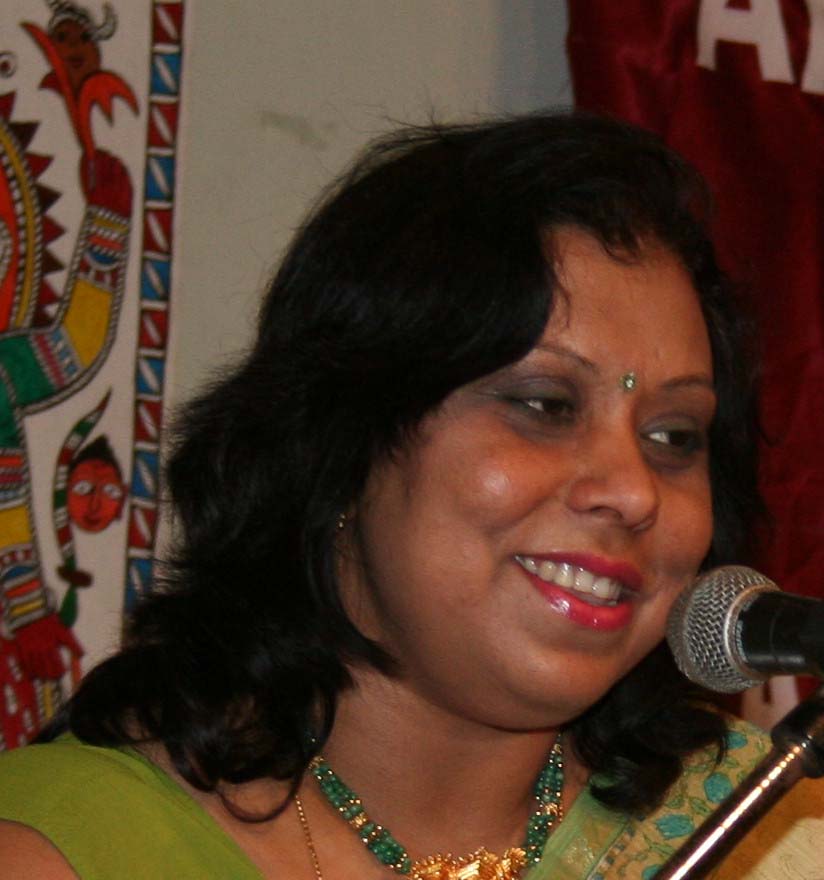

|
Paula Banerjee, the
Honorary Director of the Calcutta Research Group is
an expert on Indo-American relations and studied in
Cincinnati, Ohio. As part of her current work on borders and
women, she has authored numerous papers on women in conflict
situations in northeast India. She is a professor in the
Department of South and South East Asian Studies, University
of Calcutta. She has authored a book on Indo-US relations,
titled When
Ambitions Clash (2003),
and has co-authored a book, Women in Society and Politics
in France. Dr. Banerjee is the recipient of a number of
international fellowships including the Advanced Taft
Fellowship (1991-1993) and has been the recipient of the
WISCOMP Fellow Of Peace Award (2001). Currently she is
working on women in peace movements in South Asia and on
borders and boundaries in the region. She is now the
editorial board member of the Refugee
Watch.
She has authored and edited a number of books. Two of her
most recent publications are The State of being
Stateless: An Account of South Asia (co-edited with Atig
Ghosh and Anasua Basu Ray Chowdhury, 2016), Unstable
Populations, Anxious States: Mixed and Massive Flows in
South Asia (2013).
Sucharita Sengupta is associated with Calcutta
Research Group (CRG). Her research interests pertain to
Forced Migration and Border studies in the context of Asia.
After masters’ in Political Science from the University of
Calcutta, she joined the Calcutta Research Group as a
Research Assistant working on ‘West Bengal-Bangladesh
Borderland: Humanitarian issues’. Under this, she wrote a
paper on women trafficked from Bangladesh incarcerated in
jails of West Bengal, India. This was presented at a
workshop “Interrogating Forced Migration” in March 2015 and
published as “Bordered Lives: Women from Bangladesh behind
bars in India”, La Frontera 35 (2). Her recent
research in CRG focused on the Rohingya refugees as part of
the perilous irregular maritime migrants to the shores of
South East Asian nations like Thailand and Malaysia. In this
work she tried to trace the history and context of such
maritime drives, reasons that allure them to take to the
sea, and also the recent media attention to the phenomenon
generating mass awareness of the issue internationally,
especially in Bangladesh, and to some extent, India. The
recent focus on the plight of the boatpeople on the high
seas therefore, shows the need of a comprehensive research
and continuous advocacy to keep the issue relevant.
Currently she is working on patterns of migration in
Northeast India in wake of the Look East policy of the
Indian government, whether population mobility is impacted
upon by the developmental trajectory of the government in
the region and issues of out migration from Northeast top
the rest of India. |
|
2. |
Research Topic:
‘Food
Movement in West Bengal’ |
Abstract |
|
Draft Paper |
| |
 |
Sibaji Pratim Basu of
Department of Political Science with Rural Administration at
Vidyasagar University, Midnapore, West Bengal (India), is a
senior teacher, researcher and author in the field of a wide
range of subjects in social science. Professor Basu has
graduated from the Department of Political Science,
Presidency College, Kolkata (1981); post-graduated from
University of Calcutta (1983) and obtained Ph.D. on “The
Concepts of Nationalism and Internationalism: Tagore and
Gandhi”, from Calcutta University (2005).
He taught Political Science at Sree Chaitanya College,
Habra, West Bengal for three decades and also worked as the
Guest faculty at Post Graduate Departments of Political
Science at University of Kalyani (1987-2006) and Netaji
Subhas Open University, WB (2003-09). For more than a
decade, since 2001, he had delivered Special Lectures on
“Cultural Politics” at Rabindra Bharati University.
He has acted as Resource Person during Refresher Courses and
pre-Ph.D. courses at various universities, including
University of Calcutta. He has presented papers and chaired
sessions at different national and international
conferences/seminars. A regular contributor to academic
journals/books and popular dailies, periodicals, Professor
Basu often appears on various channels as political
commentator. He specialises in Modern Indian Political
Thought & Politics, Socialist Thought and also has serious
interest in the issues related to forced migration in
contemporary South Asia and people’s ‘sustainable rights’ in
India. |
|
|
3. |
Research Topic:
‘The
Evolution and Progress of Marxian Cultural Debate from Late
40s to late 70s, especially Debates on Dramatic Production’
&
‘The Creative Accent on the Naxalite Uprising - Drama, Film,
Prose, and Poetry’ |
Abstract-1
Abstract-2 |
|
Draft Paper |
| |
 |
Subhoranjan Dasgupta was formerly professor of Human
Sciences at the Institute of Development Studies Kolkata (IDSK).
He obtained his PhD from the South Asia Institute,
University of Heidelberg. He has several publications to his
credit in Bengali and English. His two abiding passions are
neo-Marxian aesthetics and the partition of Bengal, 1947 and
he has written on Jibanananda Das, Bishnu Dey, Akhtaruzzaman
Elias, Bertolt Brecht and Gunter Grass. His publications
include The Trauma and the Triumph : Gender and Partition
in Eastern India, The Tin Drummer’s Odyssey and
Elegy and Dream: A critical appraisal of
Akhtaruzzaman Elias’s creativity. Dasgupta has recently
received the prestigious Lila Roy Smarak Purashkar (Lila Roy
Memorial Award) for essays, interviews and translations
published in English and Bengali in journals, magazines and
anthologies |
|
|
4. |
Research Topic:
‘A Study of Anti-Tram Fare Hike Resistance and Teachers’
Movement’ |
Abstract |
|
Draft Paper |
| |

|
Anwesha Sengupta works as a Research and Programme
Associate at Calcutta research Group. She is the Project
Coordinator of the RLS funded project o Popular Movements
in West Bengal and Bihar. Her PhD dissertation, titled
Breaking Up Bengal: Land, People and Things, 1947 -1952,
looks into the politics of partition and nation making in
South Asia, focusing on East and West Bengal. She is
currently looking into the political history of West Bengal
after independence.
Anwesha has received several fellowships including
ICSSR-CSDS PhD Fellowship, DAAD Visiting Fellowship to
University of Goettingen, Foreign Travel Grant from ICHR to
work in British Library etc. She has published in Refugee
Watch, Indian Economic and Social History Review,
Policies and Practices and also in an edited volume [
Calcutta: The Stormy Decades, edited by Tanika Sarkar
and Sekhar Bandyopadhyay, Social Science Press, 2015]
|
|
|
5. |
Research Topic:
'JP Movement in Bihar’ |
Abstract |
|
Draft Paper |
| |
 |
Mithilesh Kumar
is a PhD Candidate at Western Sydney University,
Australia. His dissertation tries to understand the
evolution of new forms of governance, sovereignty and labour
processes and politics in the context of infrastructure. He
studied Delhi airport for his thesis. He has earlier worked
on logistics of migration, disaster management and
governance in Bihar. His interest is in the issues of
logistics, migration and labour and politics. He is now
currently working on the dialogic relationship between the
nature, evolution and innovation of the Indian state with
social and political movements in India. He
is the author of
"Governing Flood, Migration and Conflict in North Bihar." Government
of Peace Social Governance, Security and the Problematic of
Peace. Ed. Ranabir Samaddar. London: Ashgate, 2015 and
“Statistics , Public-Private Partnership and the Emergence
of a New Subject.” Accumulation in Postcolonial Capitalism,
Ed. Ranabir Samaddar, Samita Sen, and Iman Kumar Mitra,
Singapore: Springer, Forthcoming. |
|
| |
|
|
|
|
Experts |
|
1. |
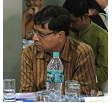 |
Dipankar Sinha is Professor, Department of Political
Science, University of Calcutta. He is also Honorary
Associate of the Centre for Media History, Macquarie
University, Sydney, and Nominated Member, Association of
Third World Studies, USA. Sinha’s area of interest broadly
relates to the communicative modes of governance and
development. Two of Sinha’s early publications include
“Foundation of a Refugee Market: A Study in Self-Reliance
Initiative” and “Adjustment and Transition in a Bengali
Refugee Settlement 1950-1999”, published in Pradip Kumar
Bose (ed.), Refugees in West Bengal: Institutional
Practices and Contested Identities. Sinha has authored
Development Narratives: Walking the Field in Rural West
Bengal, Development Communication: Contexts for the
Twenty-First Century, Media Sanskriti (in
Bengali) and Communicating Development in the New World
Order: A Critical Analysis. He has also co-authored
Media, Gender and Popular Culture in India: Tracking Change
and Continuity, Self-help Groups in West Bengal:
Challenges of Development and Empowerment, and has
co-edited Webs of History: Information, Communication and
Technology from Early to Post-Colonial India, and
Democratic Governance in India: Reflections and Refractions. |
Comments |
|
2. |
 |
Sandip Bandyopadhyay is a noted independent
researcher, activist and public intellectual of Kolkata. For
many years, he has been doing research on labour issues,
communal riots, refugees and left politics in West Bengal.
His publishes regularly in various Bengali journals and in
Economic and Political Weekly. His books include
Deshbhag, Deshtyag (Partition and Migration),
Ranakshetra Rajpath: Ponchash Shat Doshoker Kolkatae Jubo
Bikhhob ( Battleground Highway: Youth Rebellion in
Kolkata in ‘50s and ‘60s), Itihasher Dike Fire:
Chechollisher Danga (Looking Back at History: The Riot
of 1946). |
Comments1
Comments2 |
|
3. |
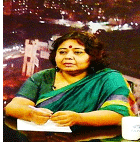 |
Meghna Guhathakurta
is executive director of Research Initiatives Bangladesh
(RIB), a research support organization based in Dhaka, which
specializes in action research with marginalized
communities. From 1984 to 2007, she taught International
Relations at the University of Dhaka. Her field of
specialization has broadly been international development,
gender relations, and South Asian politics. She is widely
published on these issues. She serves as associate editor of
the Journal of Social Studies published from the
Centre for Social Studies in Dhaka. She is advisor to the
International Chittagong Hill Tracts Commission, an advocacy
watchdog, and has been project coordinator of RIB’s project
in the official Rohingya camps as implementing partner of
UNHCR from 2011-2014 Guhathakurta
graduated from the University of Dhaka and received her
Ph.D. Politics from the University of York, United Kingdom. |
Comments |
|
4. |
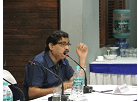 |
Siddhartha Guha Roy teaches history at Vivekananda
College, Kolkata. He is well known for his books Tram
Workers of Calcutta: Some Reflections on their Unionisation
and Political Experience, 1920 to 1930, Calcutta
Tramwaymen: A Study of Working Class History and
Human Rights, Democratic Rights and Popular Protests. He
has also written on Azad Kashmir Movement and Indian State’s
policies towards Kashmir. He regularly publishes in Bengali
as well. His noted Bengali publications include Kashmir:
Bharater Samprasarn Bonam Muktir Sangram (Kashmir:
India’s Occupation vs. Struggle for Independence) and
Manabadhikar O Ganatantrik Odhikar: Oitihashik Prekshapot
( Human Rights and democratic Rights: Historical
Perspective). |
Comments |
|
5. |
 |
Manabi Majumdar teaches Political Science in Centre
for Social Sciences, Calcutta. She is also the current
director of Pratichi Trust. She has worked and published on
issues of human development, democracy, decentralization and
local politics. She has had research appointments at the
Madras Institute of Development Studies (1994-2000) and at
the Harvard Centre of Population and Development Studies,
Harvard University (1997-98). Currently, she is also a
professor in Political Science at the Centre for Studies in
Social Sciences, Calcutta. Her publications include Social
Exclusion from Welfare Rights in India (co-authored,
1996, IILS Geneva), and (with Jos Mooij) Education
and Inequality in India: A Class View (Routlegde,
London 2011). |
Comments |
|
6. |
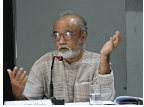 |
Sanjeeb Mukherjee has retired as a professor of
Political Science, University of Calcutta.
|
Comments |
|
7.
|

|
Pushpendra
Kumar Singh
is a professor and in-charge of Tata Institute for Social
Sciences, Patna. A sociologist by training, Prof. Pushpendra
has been engaged in teaching, research and activism.
Previously, he was with Tata Institute of Social Sciences (TISS),
Mumbai as a professor. He was a visiting fellow to Asia
Research Centre, London School of Economics and Political
Science (LSE). He also served as the Dean of the School of
Rural Development (Tuljapur campus) of TISS. He has also
contributed in the Right to Food Campaign as a campaigner
and state adviser to the Commissioners of the Supreme Court.
As part of his work with ActionAid India, he was actively
engaged in dalit and tribal rights in Bihar and Jharkhand.
He made valuable contribution in human rights assessment of
the tsunami relief and resettlement in five tsunami-affected
countries. His academic contributions have been in the area
of land reforms and agrarian relations, rural labour,
castes, displacement and rehabilitation, governance and
elementary education. He was part of the authors’ team that
prepared the Public Report on Basic Education (OUP, 1999)
and has edited a volume on land reforms (Sage Publications,
2000). His publications include Land Reforms in India: An
Unfinished Agenda (Co-edited with Mr. B.K. Sinha),
Public Report on Basic Education in India (Co-authored),
Governing Caste and Managing Conflicts: Bihar 1990-2011
(Co-authored with Dr. Manish K Jha), Some Aspects of
Tenancy Debate: Implications for Policy Reforms
(Co-authored with B.K. Sinha in D. Narasimha Reddy (ed.),
Agrarian Reforms, Land Markets, and Rural Poor), Bihar:
Including the Excluded and Addressing the Failures of Public
Provision in Elementary Education (Co-authored with Anup
K. Karan in Santosh Mehrotra (ed.), The Economics of
Elementary Education in India: The Challenge of Public
Finance, Private Provision and Household Cost ) among
many others. |
Comments |
|
8. |
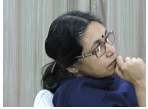 |
Anuradha Roy teaches history at Jadavpur University.
Previously, she has taught at the University of North
Bengal, Visva-Bharati and University of Burdwan. She was a
visiting fellow at Maison des Sciences de l’Homme, Paris, in
1997, a visiting scholar at Indian Institute of Advanced
Studies, Shimla, in 2006 and an honorary fellow, Maulana
Abul Kalam Azad Institute of Asian Studies, Kolkata, in
2011. As a researcher, she studies intellectual and cultural
history focusing on the life of the Bengali bhadralok
(middle-class literati). Initially her research focused on
their cultural communism during the late colonial and early
independence period. Now she looks into their cultural
nationalism. Recently she has taken interest in the
bhadramahila (the womenfolk of the bhadralok family) too.
Another recent research interest is Gandhian social activism
in Bengal. Her most recent publication is Cultural
Communism in Bengal, 1936-1952. Her other publications
include Challisher Dashaker Banglay Ganasangeet
Andolan (The song movement sponsored by the Communist
Party in Bengal during the 1940s), Sekaler Marxiya
Samskriti Andolan (The Marxist cultural movement of the
olden days), Nationalism as Poetic Discourse in
Nineteenth Century Bengal among others. |
Comments1
Comments2 |
|
9. |
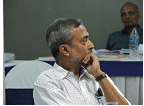 |
Moinak Biswas is Professor, Department of Film
Studies, Jadavpur University. He was one of the initiators
of Department, the first of its kind in South Asia. He is
also the initiator and Coordinator of the Media Lab at
Jadavpur, a centre for experiments in digital humanities and
online archiving. He writes on Indian cinema and culture.
Among his publications are Apu and After, Revisiting
Ray's Cinema (2005), and Ujan gang baiya (1988,
2012). He edits the Journal of the Moving Image and
co-edits BioScope, South Asian Screen Studies. He has
recently written and co-directed the award-winning Bengali
feature film Sthaniya Sambaad (2010). |
Comments |
|
10. |
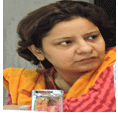 |
Ruchira Goswami is associated with the National
University of Juridical Sciences since 2000. She offers
courses in Sociology, Human Rights Law and Gender and Law.
As a British Chevening Scholar, she has a post graduate
degree in Human Rights from London School of Economics. She
has been a visiting lecturer in International Development
Studies at the International Summer School, University of
Oslo. She is also a guest faculty in M.Phil course in Women
Studies at Jadavpur University, Calcutta and post graduate
course in Sociology of Crime and Deviance in Calcutta
University.
Her publications are in the
area of International Human Rights of Women, Intellectual
Property and Women's Rights and Right to Food in India.
Her areas of interest
include human rights of women, gender and law and women's
movements. She regularly conducts human rights training
programmes for youth, women and personnel in governmental
and voluntary associations. She is one of the founder
members of Gender and Law Association; one of the trustees
of Anjali: a voluntary organization based in Calcutta that
works in the area of human rights and mental health. She is
a member of Nari Nirjatan Pratirodh Mancha - an activist
feminist organization in Calcutta and Maitree - a women's
rights network and also associated with various human rights
organizations at the local and national level. |
Comments |
|
11. |
 |
Atig Ghosh is Assistant
Professor of History, Visva-Bharati, Santiniketan. He has
taught history on a part time basis at the West Bengal State
University (Barasat) and the University of Calcutta. Earlier
he worked as Research Associate at Mahanirban Calcutta
Research Group. He was also an External fellow at the
Maulana Abul Kalam Azad Institute of Asian Studies,
carrying out a research project titled ‘Makings of Bengali
Identity in the Nineteenth Century: A Mofussil
Optic’. He had previously been associated with Bengal
Post, a Kolkata based daily. Having studied history at the
Presidency College and Jawaharlal Nehru University, he
received his doctoral degree from El Colegio de Mexico,
Mexico City. His doctoral research was lodged around
conjoint concerns of political economy and cultural
anthropology in the context of small town (mofussil) Bengal
in the nineteenth century. He has researched on
statelessness and its socio-ontological textures and
tangles in the intractable fastness of the Indo-Bangladesh
enclaves. He has edited a book Branding the Migrants
(Kolkata, 2013) and co-edited a book Stateless in South
Asia (Delhi, 2015) with Paula Banerjee and Anasua Basu
Ray Chaudhury. |
Comments |
|
12. |
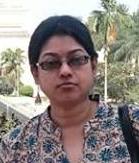 |
Subhasri Ghosh received her Phd in Modern History
from the Centre for Historical Studies, Jawaharlal Nehru
University, New Delhi on the topic The Impact of
Immigration on West Bengal, 1947-1971. Subsequently
she was engaged as a post-doctoral fellow at the
Rabindranath Tagore Centre for Human Development Studies,
Kolkata. She has also worked closely with the 1947:
Partition Archives (http://www.1947partitionarchive.org/)
She is now working as an Assistant Professor of History at
Asutosh College, University of Calcutta. She has several
publications to her credit:
‘Forgotten Voices from the P.L. Camps’ (co-author
DebjaniSengupta) in JasodharaBagchi, Subhoranjan Dasgupta(ed),
The Trauma and the Triumph: Gender and Partition in
Eastern India, Volume II (Stree, Kolkata, 2009) ISBN
81-85604-98-3, pp. 199-222
‘The Refugees and the Government: A Saga of
Self-Rehabilitation in West Bengal’ in Daniel Coleman, Erin
Goheen Glanville, WafaaHasan, and Agnes Kramer-Hamstra ed.
Countering Displacements: Creativity and Agency
(University of Alberta Press, Canada, 2012), ISBN
978-0-88864-592-0, pp. 152-176
‘Representation of Forced Migrants: A Case Study of the East
Bengali Migrants to West Bengal’Canning Memorial, March 2013, ISSN
1718-5556 URL : http://cm.revues.org/1490
‘Population Movement in West Bengal:
A Case-Study of Nadia District, 1947-1951’South Asia
Research, July 2014, 34 (2), ,
ISSN0262-7280,
pp. 113-132 |
Comments |
|
13. |
 |
Mallarika Sinha Roy teaches in Centre for Women’s
Studies, School of Social Sciences, Jawaharlal Nehru
University. Earlier she has taught Centre of Global South
Asian Studies, University of Copenhagen and she was a
post-doctoral fellow at Department of Society and
Globalisation, Roskilde University, 2008-2009. She has
studied in Presidency College, Kolkata, Jawaharlal Nehru
University, New Delhi and University of Oxford (UK). She has
written a book titled Gender and Radical Politics in
India: Magic Moments of Naxalbari (1967-1975) (Routledge
Studies in South Asian History Series, 2010). She has
also written several journal articles and book chapters
including “Bringing Space Alive: Doreen Massey’s World of
Connected Geography”, (Economic and Political Weekly,
2016), “Intimate Spaces of Struggle: Rethinking Family and
Marriage in Contemporary India” in Knut A. Jacobsen (ed)
Routledge Handbook of Contemporary India, (London:
Routledge, 2015), “Rethinking Female Militancy in
Postcolonial Bengal”, Feminist Review, (2012), “The
Romantic Manifesto of Revolution: Some Reflections on Issues
of Gender in the Naxalbari Movement” in Pradip Basu (ed)
Discourses on Naxalite Movement (1967-2009): Insights in
Radical Left Politics (Calcutta, 2010), “Magic Moments
of Struggle: Women's Memory of the Naxalbari Movement in
West Bengal, India (1967-1975)”, Indian Journal of Gender
Studies, (2009), “Contesting Calcutta Canons: Issues of
Gender and Mofussil in the Naxalbari Movement in West Bengal
(1967-1975)”, Contemporary South Asia, (2009) among
others. She was the co-convenor of Women’s Studies Seminar
Series, JNU, 2013-2015 and she is a member of Indian
Association of Women’s Studies; British Association of South
Asian Studies (BASAS) and Political Studies Association (PSA). |
Comments |
|
14. |
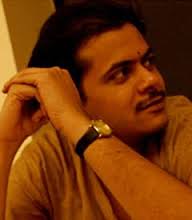 |
Jishnu Dasgupta teaches history at Serampore College.
Earlier he had taught in New Alipur College. He had also
been associated with Global South (Sephis E
Magazine). He studied history at Presidency College, and
then he went on to the University of Calcutta. His
subsequent research interest has been in the social history
of politics, particularly the social history of politics in
Bihar. He has also worked and had written on the history of
sports, particularly in the linkages of the history of
cricket with those of communalism and nation-building. His
publications include
‘Manufacturing Unison: Hindus, Muslims and Indians during
the India-Pakistan Match’, in Boria Majumdar and JA Mangan
(eds.), Sport in South Asian Society: Past and Present
(New York: Routledge, 2005); ‘Law and Homosexuality in the
South: A Sketch’, Global South, The Sephis e-Magazine,
Volume 5, No. 4, October 2009, ‘Trans(cending) Genders?’,
Global South, The Sephis e-Magazine, Volume 4, No. 3,
April 2008, ‘Of Liberty and Other Demons’, Sephis
e-Magazine, Volume 3, No. 1, November 2005, and (With
Shameek Sarkar and Sanchari Sur) ‘The Biggest Sculpture Show
in the World: Durga Puja in Calcutta’, Sephis e-Magazine,
Volume 2. No. 2, January 2004. |
Comments |
|
15. |
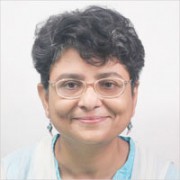 |
Sudeshna Banerjee is a
professor at the Department of History, Jadavpur University.
She had studied History
at Presidency College, Calcutta, then University of Calcutta
and did her PhD from the School of Oriental and African
Studies, University of London.She had earlier taught at City
College, Calcutta. Using mainly a social history
perspective, she engages with women and gender, the city and
urbanization, the environment and environmentalism, science
and society, colonialism and nationalism, the political
economy and cultural politics of neoliberal globalization,
and development-induced displacement. Temporally, her focus
is on the late nineteenth to the early twenty-first century.
Geographically, South Asia, India and particularly
Bengal/West Bengal are the areas on which she concentrates.
She was awarded Fulbright-Nehru Senior Research Fellowship,
tenable at Brown University, USA, 2012-13, Charles Wallace
India Trust (UK) grant-in-aid towards completion of doctoral
research in the UK, 1996, The Commonwealth Academic Staff
Scholarship (tenable at the School of Oriental and African
Studies, University of London) for Doctoral research in the
UK during 1993-1996, UGC Junior Research Fellowship, 1984-85
and UGC National Scholarship for rank-holders in the First
Class in the B.A. (Honours) Examination, 1980-81.
Her major publications are
‘Non-Bengali’ Icons of Malevolence: The Bengali Middle-Class
Representation of an “Other” in Inter-War Calcutta’ in
Himadri Banerjee et al (eds), The Calcutta Mosaic: Essays
and Interviews on the Minority Communities of Calcutta ,
London and New Delhi, 2009; ‘Public Memory, Personal
Memories and the Historical Moment: Rethinking Partition
Here and Now’, in Journal of Peace Studies, vol. 12, issue
3, July-Sept, 2005; ‘Displacement within Displacement: The
Crisis of Old Age in the Refugee Colonies of Calcutta’,
Studies in History (New Series), vol. 19, number 2,
2003. |
Comments |
|
16. |
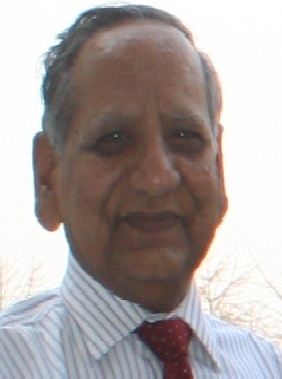 |
Mahendra N. Karna
A sociologist by training, Mahendra Narain Karna has taught
in various institutions including B.N. College (Patna), IIT
(Kanpur), Tezpur University (Assam) and North Eastern Hill
University (Shillong). He was also the director of A.N.
Sinha Institution of Social Studies (ICSSR Institution ,
Patna). He has written extensively on popular politics in
Bihar and in India’s North East, communalism in India,
agrarian relations and peasant politics in Bihar, youth
violence, nationalism etc. He is the author of 12 books, 15
articles and 20 book chapters in edited volumes. He is
presently editing a nine volume collection on J P Movement
in Bihar. He is a life member of International Sociological
Association, Indian Sociological Society, Bihar
Sociological Society, North East India History Association,
North East India Political Science Association and North
East India Social Science Congress. |
Comments |
|
17. |
|
Nirban Basu
teaches history at the University of Calcutta. Previously
he was associated with the Department of History, Kalyani
University. He is known for his widely acclaimed monographs
The
working class movement: A study of jute mills of Bengal,
1937-47 (Kolkata, 1994) and
The political parties and
the labour politics, 1937-47:
With special reference to Bengal (Kolkata, 1992). His
area of interests are labour studies and socio-political
history of twentieth century Bengal. He has about forty
research awardees to his credit. He is also the Vice
President of Pashchim Banga Itihash Sansad and a member of
the Executive Committee of the Institute of Historical
Studies, Kolkata. He is also the Chairperson of Calcutta
Unversity Undergraduate Board of Studies in History.
|
Comments |
|
18. |
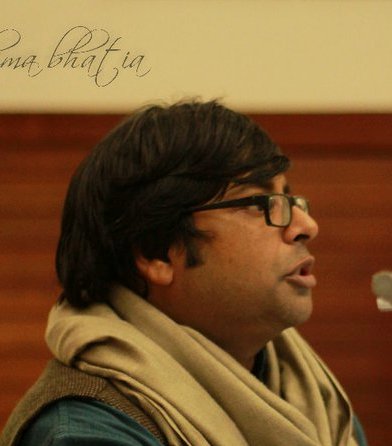 |
Rajarshi Dasgupta teaches Political Science in
Jawaharlal Nehru University, New Delhi. Earlier he was a
fellow in Centre for Studies in Social Sciences, Kolkata. Rajarshi
did his Masters and M.Phil from JNU and he did his PhD from
Oxford University.
Rajarshi Dasgupta is known for his writings in English and
Bengali on Marxian aesthetics, refugee politics,
urbanization and development and contemporary students
politics. Some of his important publications are
'Ethics and Politics' in Pradip Kumar Datta and Sanjay
Palshikar eds., Indian Political Thought, Political
Science Volume 3, Oxford University Press, New Delhi; 'The
CPI(M) “Machinery” in West Bengal: Two Village Narratives
from Kochbihar and Malda', Economic & Political Weekly,
February 28, 2009, vol xliv no 9; 'Rhyming Revolution:
Marxism and Culture in Colonial Bengal' in Studies in
History, Volume 21:1, Jan-June 2005. His Bengali articles,
‘Marxbaader Bhoot Bonam Marxbaadir Gotra’ (Abobhash,
2006) and ‘Geneva Camp, Dhaka: Anitya Anchol, Parijayee
Swatta’ (Agrabeej, 2007), also deserve special
mention. Rajarshi Dasgupta is presently preparing a
monograph titled The Ascetic Modality. Rajarshi is
also currently involved in a research collaboration with
Prof. Shubhra Gururani, York University, on
‘Peri-urbanization in India’, focusing on West Bengal and
the National Capital Region. |
Comments1
Comments2 |
|
19. |
 |
Kumar Rana
1. Working with the
Pratichi Trust since 2001 and helped develop the research
team of the Trust that has taken shape of the Pratichi
Institute (in 2011). Led several primary investigations on
primary education, health delivery, food and nutrition
carried out by the Trust.
2. Was
part of a two-years ethnographic research project on
seasonal migration in Eastern India carried out by the
School of Development Studies, University of East Anglia.
3. Taken
part in quantitative data collection for several projects,
including the Human Development Report 1994 and Market
Information Survey of Households (MISH) 1995, carried out by
the National Council of Applied Economic Research (NCAER)
and travelled extensively in the states of Bihar and
Jharkhand (600 villages), Uttar Pradesh (60 villages),
Haryana (30 villages), Himachal Pradesh (30 villages),
Andhra Pradesh (28 villages).
4. Joined
active politics while pursuing high school education, and
was involved in a series of movements on land, wage, forest
and Jharkhand separate statehood.
5. Contributed
to journals like the Economic and Political Weekly,
and newspapers like the AnandabazarPatrika.
Contributory author of a number of volumes edited by eminent
scholars. Authored several reports of the investigations
carried out by the Pratichi Trust. Published a number of
books in Bangla. Taken part in and edited the translations
of Amartya Sen’s The Argumentative India, Identity and
Violence, The Idea of Justice (co-edited with Anirban
Chattpadhyay), Uncertain Glory (jointly authored by
Jean Dreze; jointly translated with Anirban Chattopadhyay);
translation of Sen’s The Country of First Boys is
ongoing (jointly with Anirban Chattopadhyay).
6.Member,
Calcutta Research Group; Honorary Fellow, Asian Development
Research Institute, Patna.
7. Currently
editing a Bangla fortnightly Arekrakam,
(Founder-editor: Ashok Mitra).
Pursuing (2015-17) Masters in Medical Sciences in Global
Health Delivery (MMSC-GHD) at the Department of Global
Health and Social Medicine, Harvard Medical School, Harvard
University. |
Comments |
|
20. |
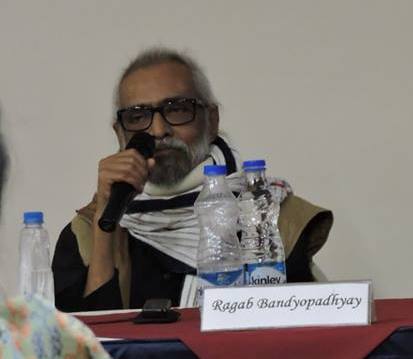 |
Raghab Bandyopadhyay is a noted contemporary Bengali
novelist and short story writer. He was an active
participant in the naxalite movement in the late 1960s and
early 1970s. He had been journalist and also he had edited
of two non- conventional Bengali journals- Yogsutra,
Charcha. His novels include Comunis , Shoishab
(Childhood), Tahara (They), Mudran soundarya (Printing
Aesthetics), Sahar sanskaran (City Edition), Chor Challish
(40 thieves) , Operation Rajarhat, Kata jibher brittanta
(Details of a wounded tongue) etc. His important short story
collections are: Akaalbodhan O Anyanya Galpo, Badar galpo,
Angshagrahan, Galpo 33, Ashmani Katha: Uchchheder 5 Kahon,
Daladas. His noted works on non-fictions are Kamalkumar
Kolkata: Pichhutaaner itihas and Marjiner Lekha Lekhar
Marjine. He has also published following collections of his
journalistic essays: Banglar mukh, Babu Bibi o Tahara,
Prantojaner Katha, Journal 70. His writings are considered
as seminal examples of a new genre of literature that was
produced in Bengal in ‘70s under the influence of left
radicalism. His political and journalistic writings are
considered as rich documents of postcolonial politics of
West Bengal. |
Comments |
|
21. |
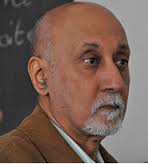 |
Achin Vanaik
is currently a Fellow at Transnational Institute,
Netherlands. He has recently retired from the Department of
Political Science, Delhi University where he was a professor
of International Relations and Global Politics. Earlier he
had been a visiting professor at Jamia Milia University and
a research fellow at Nehru Memorial Museum and Library. He
has also worked as an assistant editor in Times of India.
His publications include Selling US Wars (USA:
Interlink Publishers), Globalization and South Asia:
Multidimensional Perspectives (New Delhi: Manohar
Publishers), The Furies of Indian Communalism. Religion,
Modernity and Secularization (London: Verso), South
Asia on a Short Fuse. Nuclear Politics and the Future of
Global Disarmament (Co-author with Praful Bidwai) (New
Delhi: Oxford University Press) and A Marxist Concept of
Social Justice (New Delhi: Occasional Paper Series,
Department of Political Science, University of Delhi), In
1998, in the wake of the India-Pakistan nuclear tests,
Vanaik co-founded the Movement in India for Nuclear
Disarmament (MIND), and South Asians Against Nukes. He is a
co-recipient, with Praful Bidwai, of the International Peace
Bureau's Sean McBride International Peace Prize for 2000. |
Comments |
|
22. |
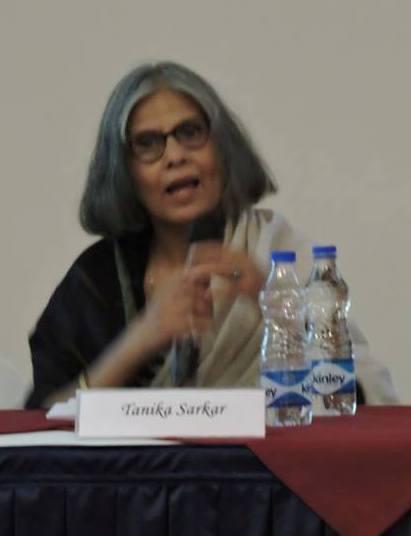 |
Tanika Sarkar is a historian of
modern India.
Sarkar's work focuses on the intersections of religion,
gender, and politics in both colonial and postcolonial South
Asia,
in particular on women and the Hindu Right. She has recently
retired from Centre for Historical Studies, Jawaharlal
Nehru University.
Before joining CHS, JNU she taught at the St.
Stephen's College,
and the Indraprastha
College, Delhi
University.
She was also a fellow at the Nehru Memorial Museum and
Library, New Delhi, between 1990 and 1994 and at the Centre
for Modern Oriental Studies, Berlin in summer 2000. She has
been a visiting professor at Chicago University, University
of Witswatersland, Johannesberg, South Africa, and Centre
for Modern Indian Studies (University of Goettingen,
Germany).Tanika Sarkar’s important publications are:
Bengal 1928-1934: The Politics of Protest, (Oxford
University Press India, 1987).
Words to Win: A Modern Autobiography (Kali for Women,
1999).
Khaki Shorts and Saffron Flags: A Critique of the Hindu
Right (coauthored with Tapan Basu, Pradip Datta, Sumit
Sarkar and
Sambuddha Sen; Orient Longman 1993).
Women and the Hindu Right (edited jointly with Urvashi
Butalia,
1995).
Women and Right-Wing Movement: Indian Experiences (edited
jointly with Urvashi
Butalia,
1998).
Hindu Wife, Hindu Nation: Community, Religion, Cultural
Nationalism (Hurst, 2001).
Women and Social Reform in Modern India: A Reader (two
volumes, edited jointly with Sumit
Sarkar,
2008).
Rebels, Wives, Saints: Designing Selves and Nations in
Colonial Times (University of Chicago Press, 2009).
Caste in Modern India: A Reader (two volumes, edited
jointly with Sumit
Sarkar,
Permanent Black, 2013).
Words to Win: The Making of a Modern Autobiography (2014) |
Comments |
|
23. |
 |
Ritajyoti Bandyopadhyay
is
Assistant Professor, Indian Institute of Science, Education
and Research, Mohali. He has been Postdoctoral
Fellow/Lecturer, State and Democracy Research Group, Centre
for Modern India Studies, University of Gottingen (October,
2012-July, 2013)
Postdoctoral Associate, Urban Research and Policy
Programme, NIAS, Bangalore (November, 2010-September, 2012).
He did his PhD in History (Jadavpur University/
Centre for Studies in Social Sciences, Calcutta, India, and
partly at Department of Sociology, University of California,
Berkeley)
He has a post doctoral Fellowship at National Institute
of Advanced Studies, Indian Institute of Science, Bangalore.
2009 – 2010: Fulbright-Nehru
Doctoral-and-Professional-Research-Fellowship, housed by
University of California, Berkeley, USA.
2006 – 2009: Sasakawa Young Leaders’ Fellowship
Fund Doctoral Fellowship, housed by the Department of
History, Jadavpur University, Calcutta, India.
2008: SYLFF-FMP Doctoral Visiting Fellowship,
housed by El Colegio de Mexico, Mexico City, Mexico. He is
the author of The Rule of the Street: Institutions and
Informality in Calcutta in the Long Twentieth Century,
Cambridge University Press, (Under Contract). Email:
ritajyoti@gmail.com |
Comments |
|